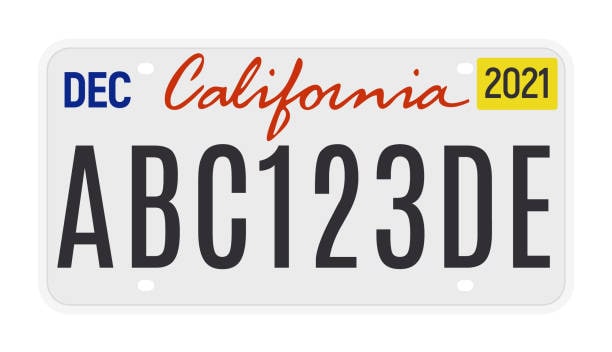 â
â
Registering a vehicle in California is a crucial step to ensure legal operation on the state's roads. Whether you're a new resident, purchasing a vehicle from a dealership, or buying from a private party, understanding the registration process is essential. This comprehensive guide will walk you through the necessary steps, requirements, and considerations for registering your car in California.
Understanding Vehicle Registration in California
In California, the Department of Motor Vehicles (DMV) oversees vehicle registration. All vehicles must be registered to legally operate on public roads. Registration serves as proof of ownership and ensures that vehicles meet California's safety and environmental standards.
Registering a New Vehicle Purchased from a Dealership
When you purchase a new vehicle from a licensed dealership in California, the dealer typically handles the registration and title paperwork on your behalf. They will provide you with temporary registration until the official documents and license plates arrive. Ensure that you receive copies of all paperwork for your records.
Registering a Used Vehicle Purchased from a Private Party
If you buy a used vehicle from a private seller, you'll need to handle the registration process yourself. Here's how:
-
Transfer the Title: Obtain the vehicle's title from the seller, ensuring that both you and the seller have signed it. If the title is missing, you'll need to complete an Application for Duplicate or Paperless Title (Form REG 227).
-
Complete the Application for Title or Registration (Form REG 343): This form requires information about the vehicle and the new owner.
-
Smog Certification: Vehicles more than four years old require a smog inspection. The seller is generally responsible for providing a valid smog certificate, which is valid for 90 days. Some vehicles, such as electric cars, are exempt from this requirement.
-
Odometer Disclosure: For vehicles less than 10 years old, you'll need to provide an odometer reading. This can be done on the title or with a Vehicle/Vessel Transfer and Reassignment Form (Form REG 262).
-
Proof of Insurance: California requires all vehicles to have minimum liability insurance. Ensure you have proof of insurance before registering the vehicle.
-
Pay Applicable Fees: Registration fees vary based on the vehicle's value, type, and your county of residence. Fees may include a registration fee, vehicle license fee, smog abatement fee, and local taxes. The California DMV provides a fee calculator to estimate costs.
Registering an Out-of-State Vehicle
If you're bringing a vehicle into California from another state, follow these steps:
-
Establish Residency: You have 20 days to register your vehicle after becoming a California resident. Residency is established by actions such as obtaining employment, renting or leasing property, or enrolling children in school.
-
Vehicle Inspection: An out-of-state vehicle requires a Vehicle Identification Number (VIN) verification, which can be performed at a DMV office or by a licensed verifier.
-
Smog Certification: Ensure the vehicle meets California's emission standards. A smog inspection is required for most vehicles; however, certain exemptions apply.
-
Complete Necessary Forms: Fill out the Application for Title or Registration (Form REG 343) and provide the out-of-state title. If there's a lienholder, additional documentation may be required.
-
Proof of Insurance: Obtain California-compliant auto insurance before registering the vehicle.
-
Pay Applicable Fees: Fees for out-of-state vehicles may include use tax, based on the vehicle's value and your county of residence, along with standard registration fees.
How Much Does it Cost to Register a Car in California?
The cost to register a car in California varies based on several factors, including the vehicle's value, type, age, and your county of residence. Typical fees include:
-
Registration Fee: Usually around $60.
-
Vehicle License Fee (VLF): Approximately 0.65% of the vehicle's assessed value.
-
Smog Abatement Fee: Typically around $25 for newer vehicles exempt from smog checks.
-
County or District Fees: Additional fees may apply based on local taxes or air quality programs.
The California DMV provides an online fee calculator on their website, allowing you to estimate the exact costs based on your specific vehicle and location.
Registration Renewal
California vehicle registrations must be renewed annually. The DMV sends a renewal notice approximately 60 days before your registration expires. Renewal can be completed online, by mail, or in person at a DMV office or authorized business partner. Ensure your vehicle has a current smog certification if required, and that all registration fees are paid on time to avoid penalties.
Penalties for Late Registration
Failing to register your vehicle within the specified time frames can result in penalties:
-
Late Registration: Penalties are assessed based on how late the registration is, ranging from 40% to 160% of the vehicle license fee and weight fee, if applicable.
-
Driving Without Registration: Operating an unregistered vehicle can result in fines up to $280, plus court fees.
Special Cases
- Military Personnel: Active-duty military members stationed in California may be exempt from certain registration requirements. Non-resident military personnel can maintain their home state registration but must have valid insurance. California residents stationed out-of-state can register their vehicles in their current state but must register in California upon returning.
- Salvage Vehicles: If you're registering a vehicle with a salvage title, additional inspections and forms are required. You must provide proof of ownership, complete a Certificate of Title or Salvage (Form REG 156), and pass a California Highway Patrol (CHP) inspection to ensure the vehicle is roadworthy.